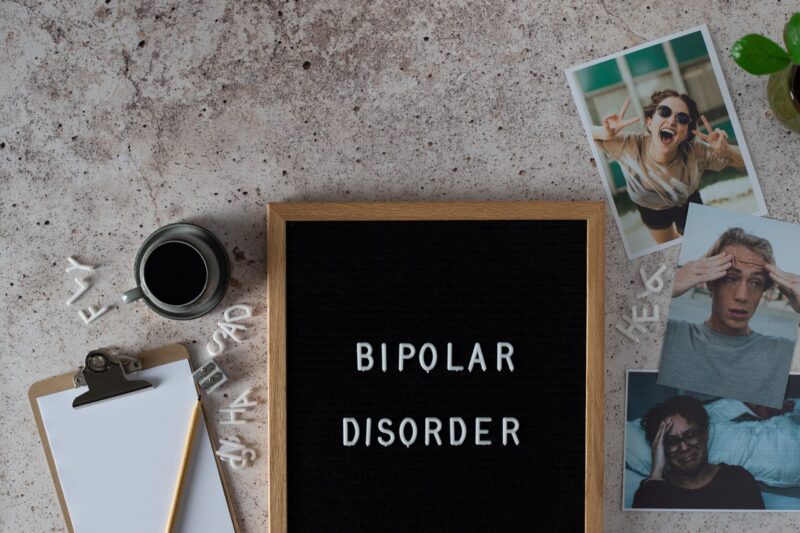Welcome to Yorba Linda, California, a place filled with the warmth of sunshine and the soothing rustle of palm trees in our daily lives. But beyond the charming exterior of our city, you’ll discover a diverse and vibrant community, each member carrying their own unique stories and life challenges. In this blog post, we extend a heartfelt invitation for you to embark on a journey that resonates not only with the people of Yorba Linda but also with individuals worldwide—the journey of living with Bipolar Disorder. Together, let’s delve into the highs and lows, the triumphs and obstacles, and the enduring support and resilience that define the lives of those navigating the intricate terrain of Bipolar Disorder.
Understanding Bipolar Disorder
Understanding Bipolar Disorder is an essential aspect of offering empathy and support to those wrestling with this intricate mental health challenge. Bipolar Disorder, often known as manic-depressive illness, brings forth significant shifts in mood, energy levels, and behavior. It manifests in two primary phases: manic episodes, characterized by heightened mood, increased energy, impulsiveness, and a reduced need for sleep, and depressive episodes, which usher in overwhelming sadness, fatigue, loss of interest in activities, and, at times, even thoughts of self-harm.
To truly grasp the intricacies of Bipolar Disorder, it’s crucial to acknowledge that it exists along a spectrum, with varying intensities and unique patterns of mood swings for each individual. Additionally, understanding that it’s a lifelong condition necessitating ongoing management through therapy, medication, and adjustments to one’s lifestyle is of utmost importance. By championing education and fostering open conversations about Bipolar Disorder, we can dissolve the stigma surrounding it and cultivate a nurturing environment where individuals dealing with this condition can seek help, lead fulfilling lives, and effectively manage their symptoms.
Diagnosis: Navigating Uncharted Waters
Diagnosing Bipolar Disorder is a deeply involved and intricate process, where empathy and a genuine desire to understand an individual’s unique mental health journey are at the forefront. It typically kicks off with a thorough evaluation conducted by a caring mental health professional, often a psychiatrist or clinical psychologist. In this evaluation, they engage in heartfelt conversations with the person, delving into their emotional experiences and behaviors while considering any relevant family history related to mood disorders.
One of the significant challenges in diagnosing Bipolar Disorder is that manic episodes can sometimes mimic other mental health conditions, like major depressive disorder or anxiety disorders. Due to this, it takes a keen eye to distinguish Bipolar Disorder from these conditions. Healthcare providers rely on specific criteria outlined in the Diagnostic and Statistical Manual of Mental Disorders (DSM-5). These criteria involve identifying manic or hypomanic episodes, characterized by heightened mood, increased energy, and impulsivity, as well as recognizing depressive episodes marked by prolonged sadness and a loss of interest in daily activities. The duration, frequency, and intensity of these episodes play a pivotal role in shaping the diagnosis. Furthermore, various psychological assessments and diagnostic tools are thoughtfully employed to gain a comprehensive understanding of the individual’s mental well-being, ultimately guiding the way to an accurate diagnosis and the creation of a personalized treatment plan.
Managing Bipolar Disorder
Managing Bipolar Disorder is a lifelong journey that involves a blend of strategies and support to help individuals live fulfilling lives. Medication plays a crucial role in stabilizing mood swings, and healthcare professionals often prescribe mood stabilizers, antipsychotics, or antidepressants tailored to the specific phase and severity of the disorder. Consistent therapy, including approaches like cognitive-behavioral therapy (CBT) and psychoeducation, equips individuals with valuable tools to identify triggers, handle stress, and develop coping mechanisms.
In addition to medication and therapy, making lifestyle adjustments is vital for effectively managing Bipolar Disorder. Establishing regular sleep patterns, maintaining a balanced diet, engaging in physical activity, and adopting stress-reduction techniques contribute to mood regulation and the prevention of extreme mood swings. The support of friends and family is invaluable, providing a network of understanding and encouragement. Creating a structured routine and monitoring mood patterns empowers individuals to take proactive steps in managing their condition. By combining these approaches, those with Bipolar Disorder can effectively navigate the challenges of the disorder and lead fulfilling, stable lives.
Receiving Support
At Lisa Eaton Therapy, we are dedicated to supporting individuals on their journey to living with Bipolar Disorder in Yorba Linda. Our compassionate team of mental health professionals is committed to providing the care and guidance necessary for a fulfilling life despite the challenges of this condition. We believe that with the right combination of therapy, medication, and lifestyle adjustments, individuals can achieve stability and lead meaningful lives. If you or a loved one is seeking assistance in managing Bipolar Disorder, know that you’re not alone. We are here to offer our expertise and unwavering support every step of the way. Together, we can empower you to embrace life’s highs and lows while ensuring your mental health and well-being remain our top priority.
Take the first step in managing your Bipolar Disorder by contacting Lisa Eaton Therapy today!




